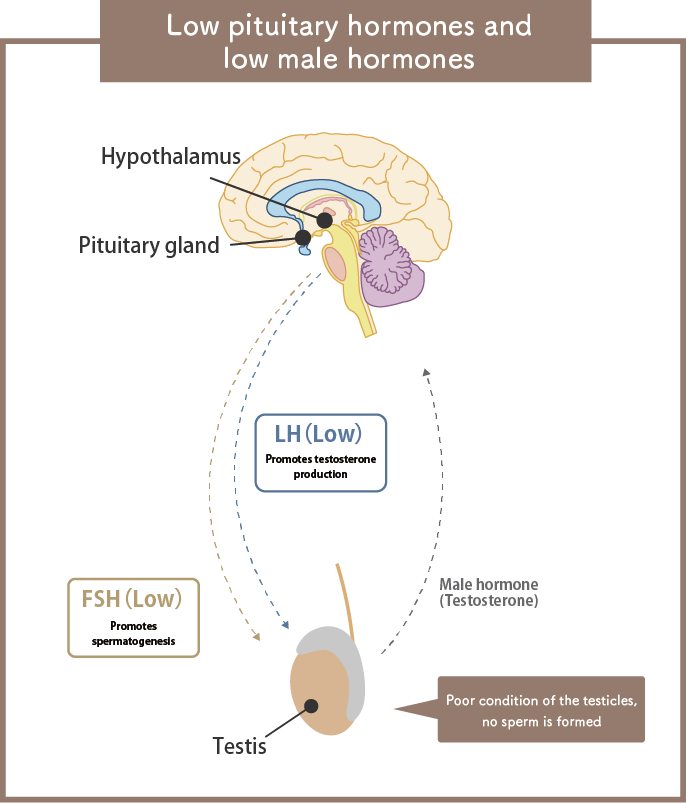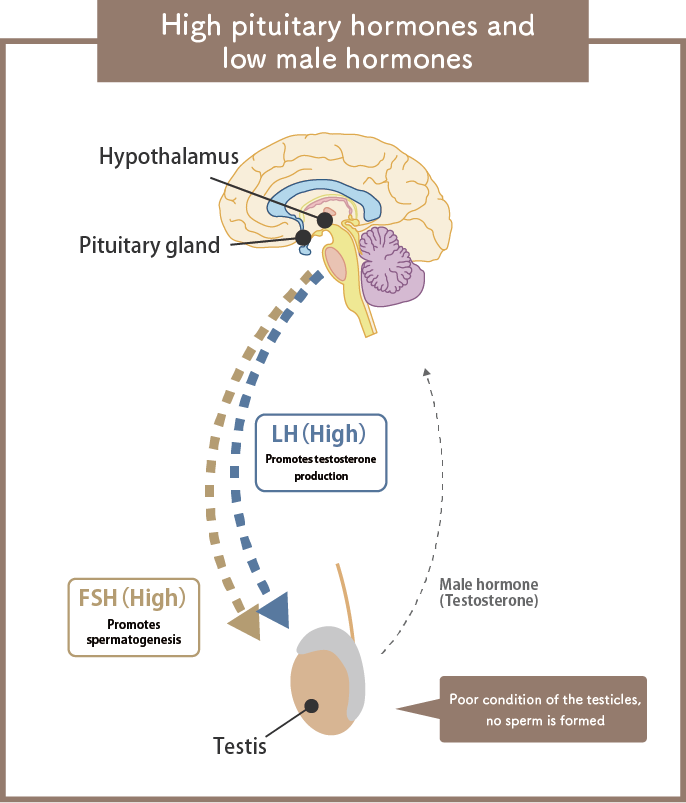It is a disease that occurs when sex hormones are not secreted properly due to a problem with the pituitary gland located at the bottom of the brain, and although it is not a common cause, it can also cause male infertility.
Sperm is produced and male hormones are secreted in the testes, but the hormones in the pituitary gland in the brain control the function of the testes.
The anterior pituitary gland secretes the following two hormones that send commands to the testes.
-
LH (Luteinizing Hormone): Command to secrete male hormone (testosterone) from the testes
-
FSH (Follicle Stimulating Hormone): Command to produce sperm from the testes
Deficiency of these hormones can cause the testes to function poorly, resulting in low testosterone levels and the inability to produce sperm.
Pituitary hormone test
To diagnose abnormal hormone levels, blood tests and testicular stimulation are performed to measure LH and FSH, the hormones that produce sperm and male hormones, as well as other pituitary hormones (prolactin: PRL, growth hormone: GH, thyroid hormone: TSH, adrenocorticotropic hormone: ACTH) the following are measured.
If other hormones are low, treatment is also required to replace them.
Low pituitary hormones (FSH, LH) and low male hormones
If testosterone is low, hypogonadotropic hypogonadism is present.
It is a condition in which the pituitary gland, a part of the brain that functions poorly, causes the testes to be in poor condition and sperm are not formed.
Improvement in sperm count is observed by administering hormone injections for a certain period of time. There is a public expense burden.
If testosterone levels are normal, adrenal gland abnormalities are suspected.
In such cases, a urologist is required.

High pituitary hormones (FSH, LH) and low male hormones
The condition of the cells in the testes is poor, testosterone is not secreted, and sperm are not formed.
There are various causes, but in this case, there are often no or very few sperm in the semen.
If sperm is detected in the semen, microinsemination is performed using in vitro fertilization.
If no sperm are found in the semen,
MD-TESE (microscopic intra-ovarian sperm extraction)
is used to directly confirm sperm in the testis.
Pathological examination is also required to confirm the spermatogenic cells (Sertoli cells or spermatocytes).

If pituitary hormone (PRL) is high
High PRL (prolactin) production suppresses GnRH (gonadotropin-releasing hormone) secretion from the hypothalamus, resulting in suppression of hormone (FSH, LH) secretion from the pituitary gland and testosterone (mainly from the testes).
This results in decreased sperm quality and inability to form sperm.
Factors that increase PRL are said to be due to pituitary gland tumors and oral medications.
If the values are somewhat high, further brain tests are necessary.









